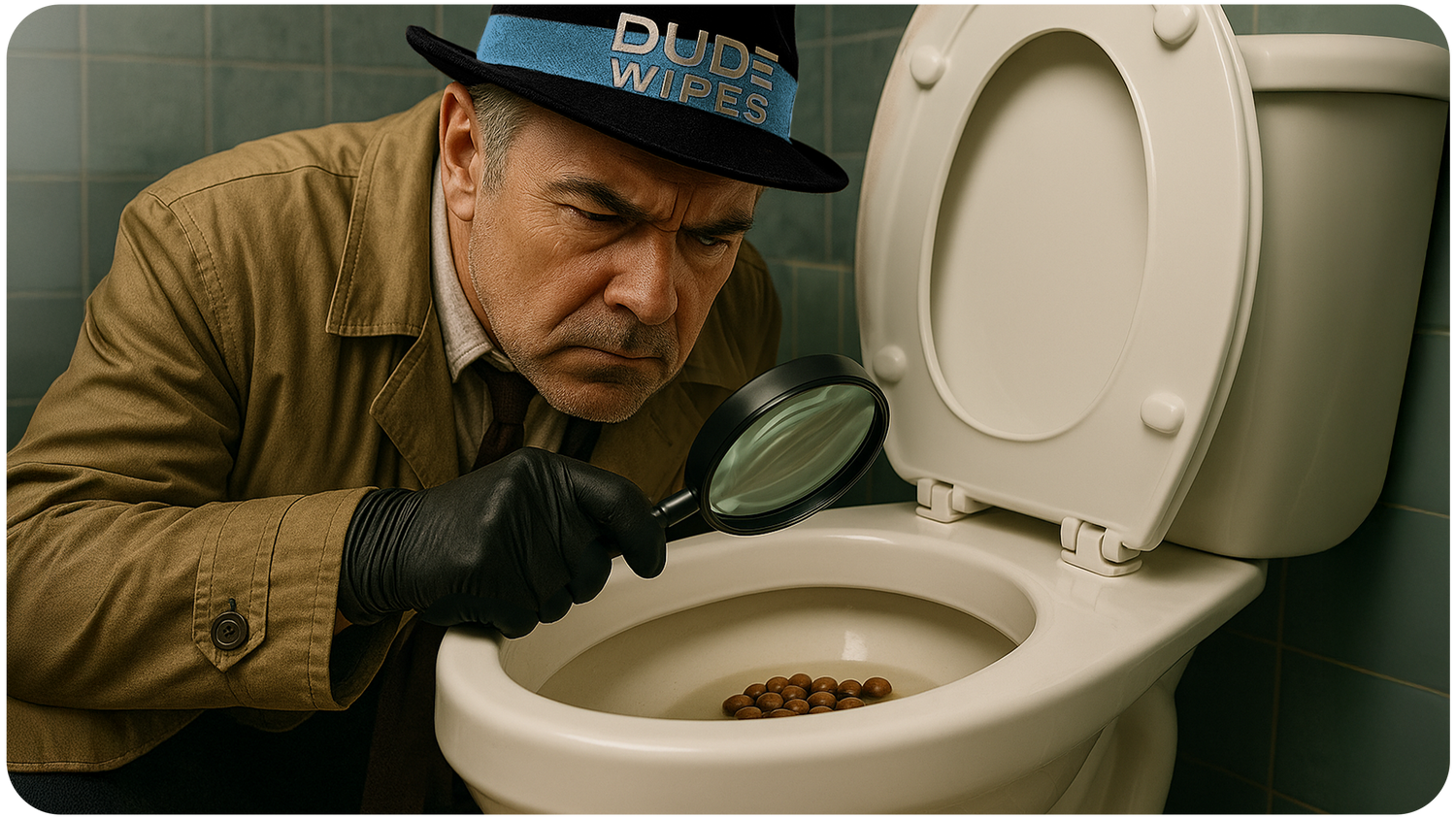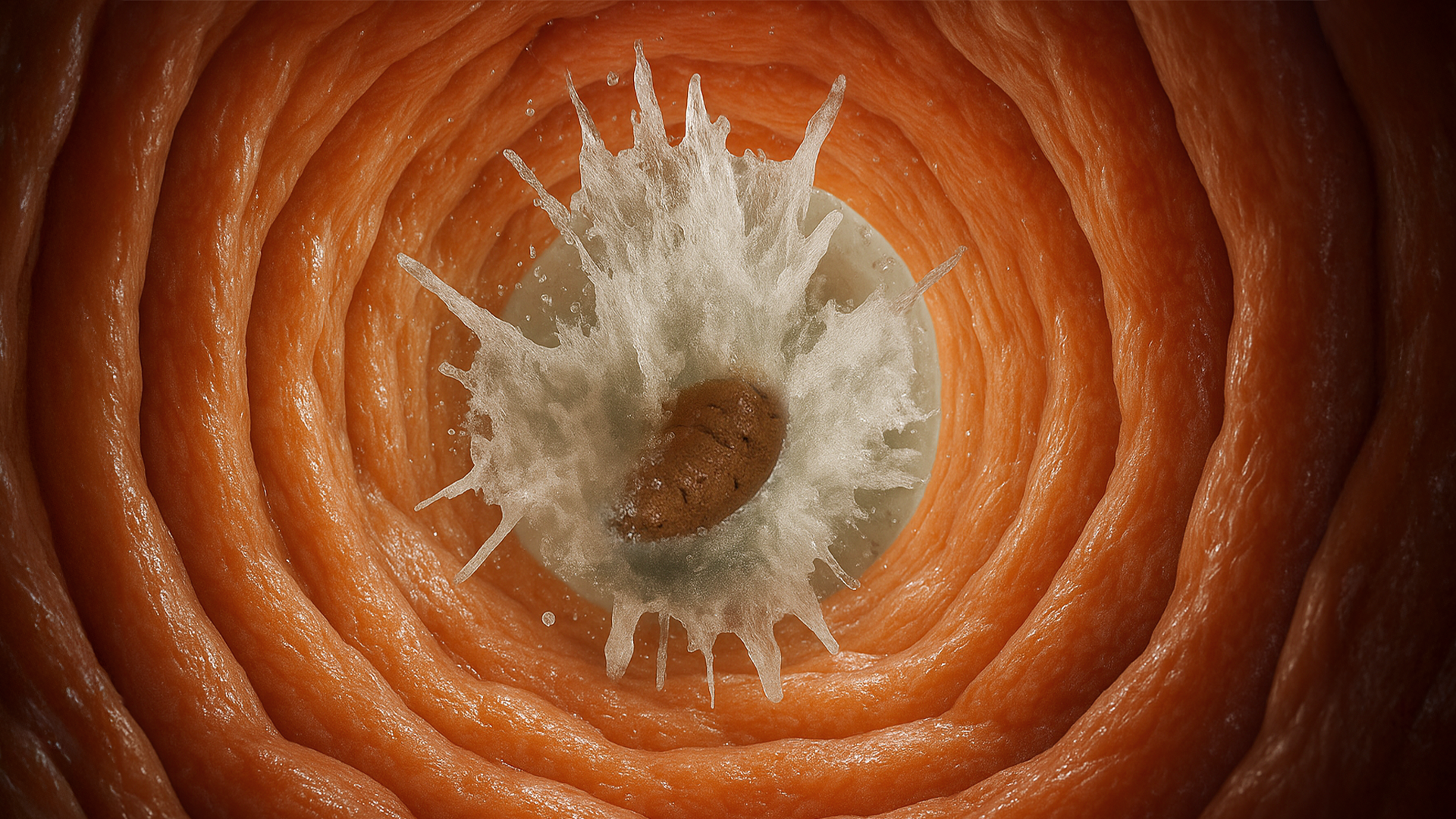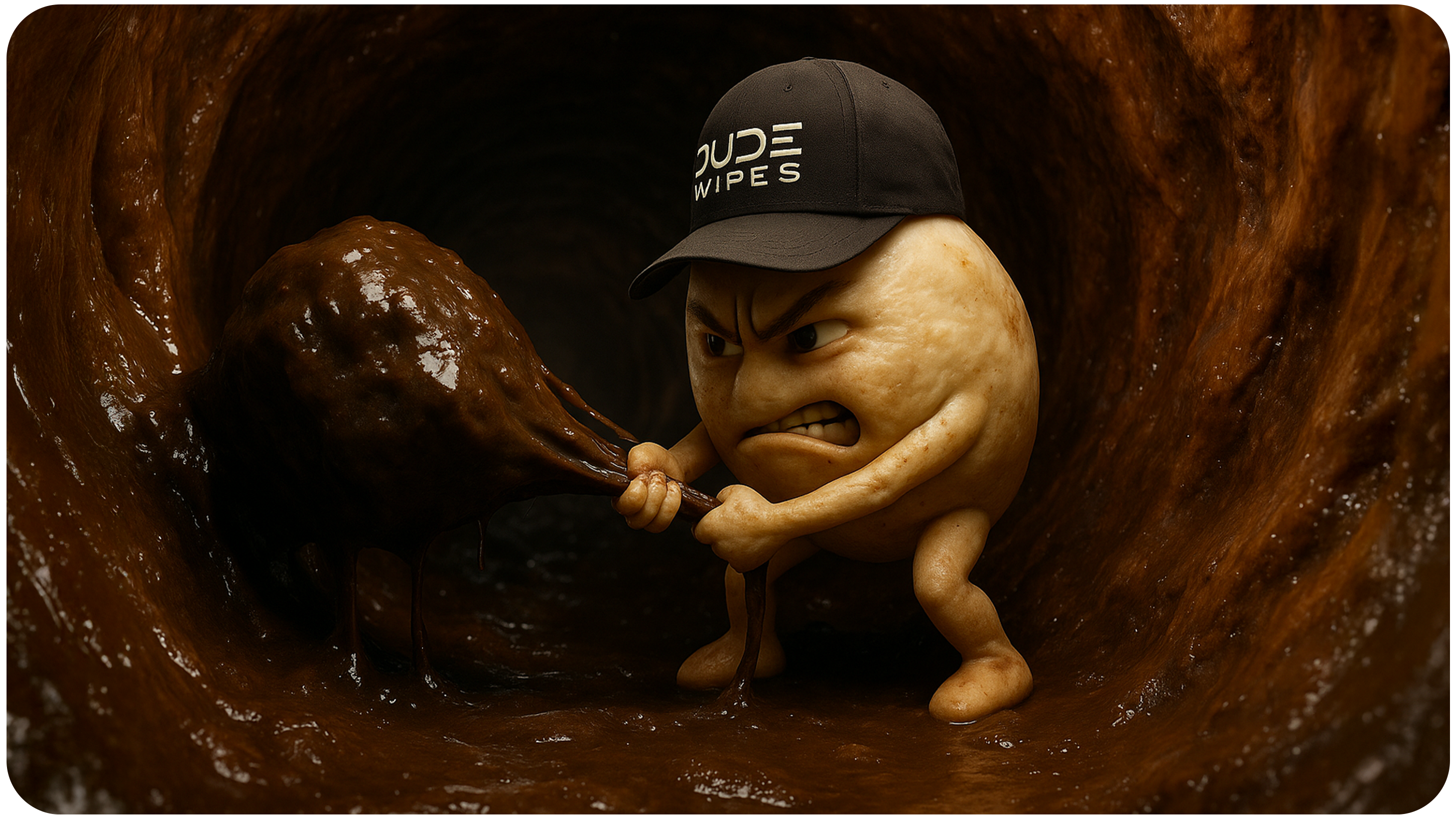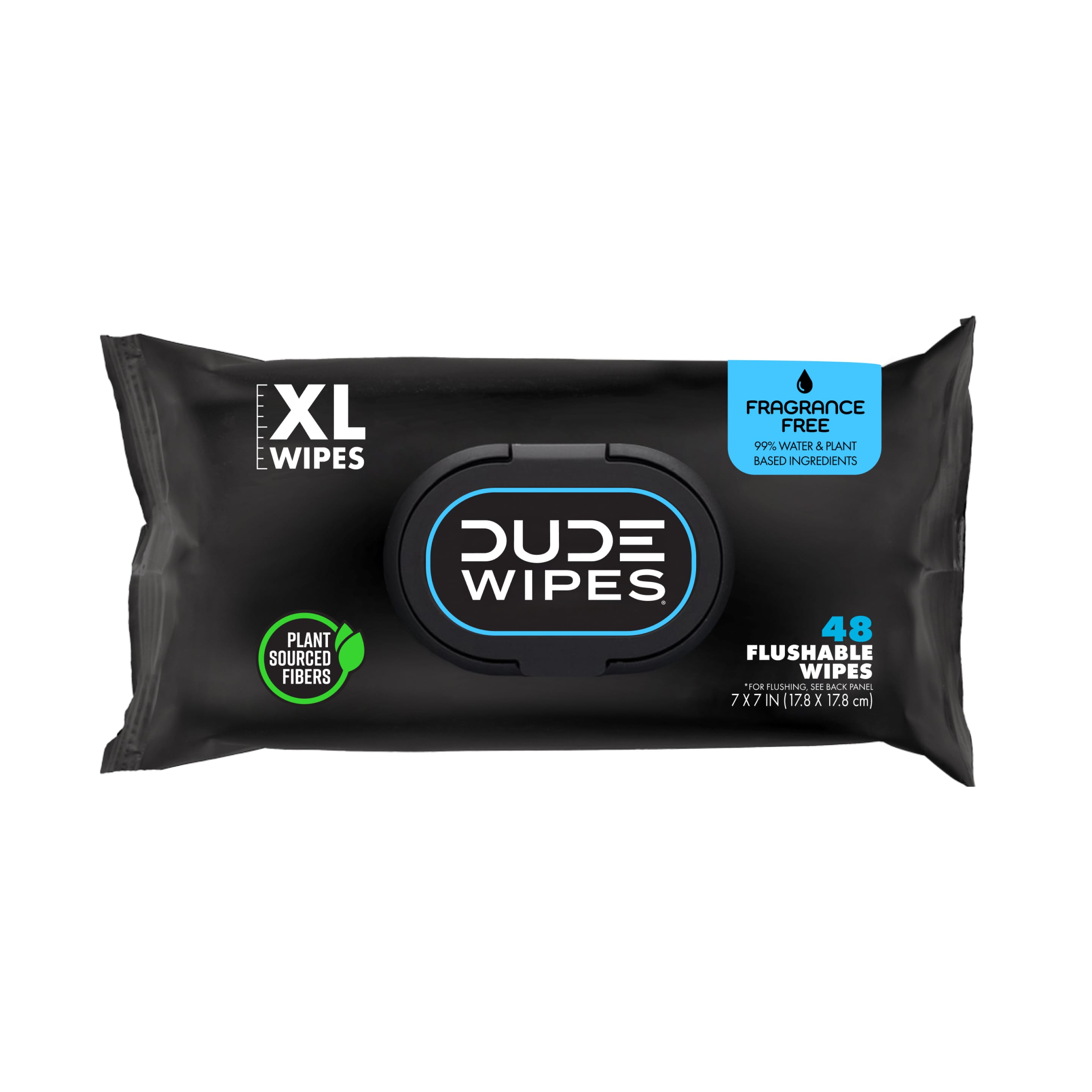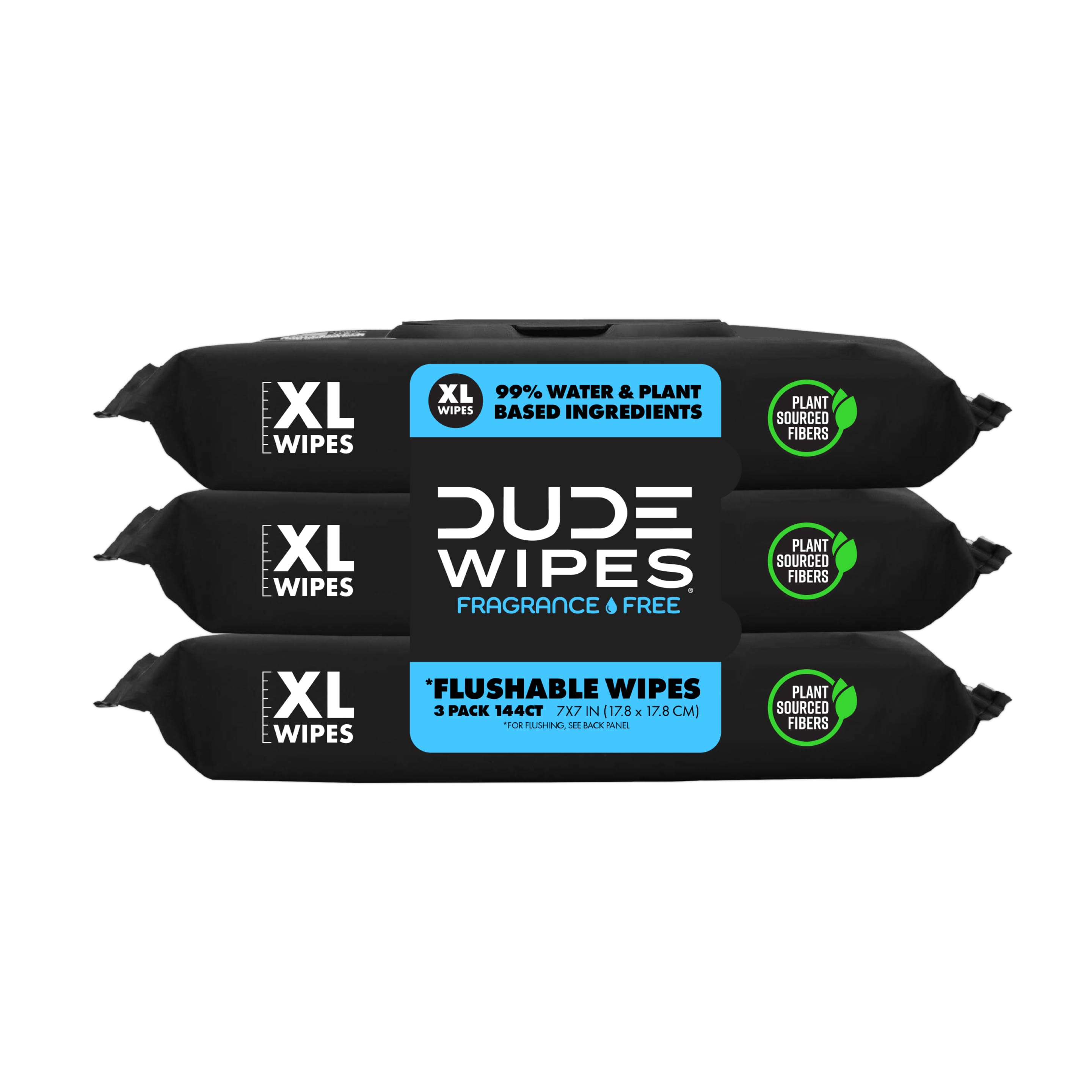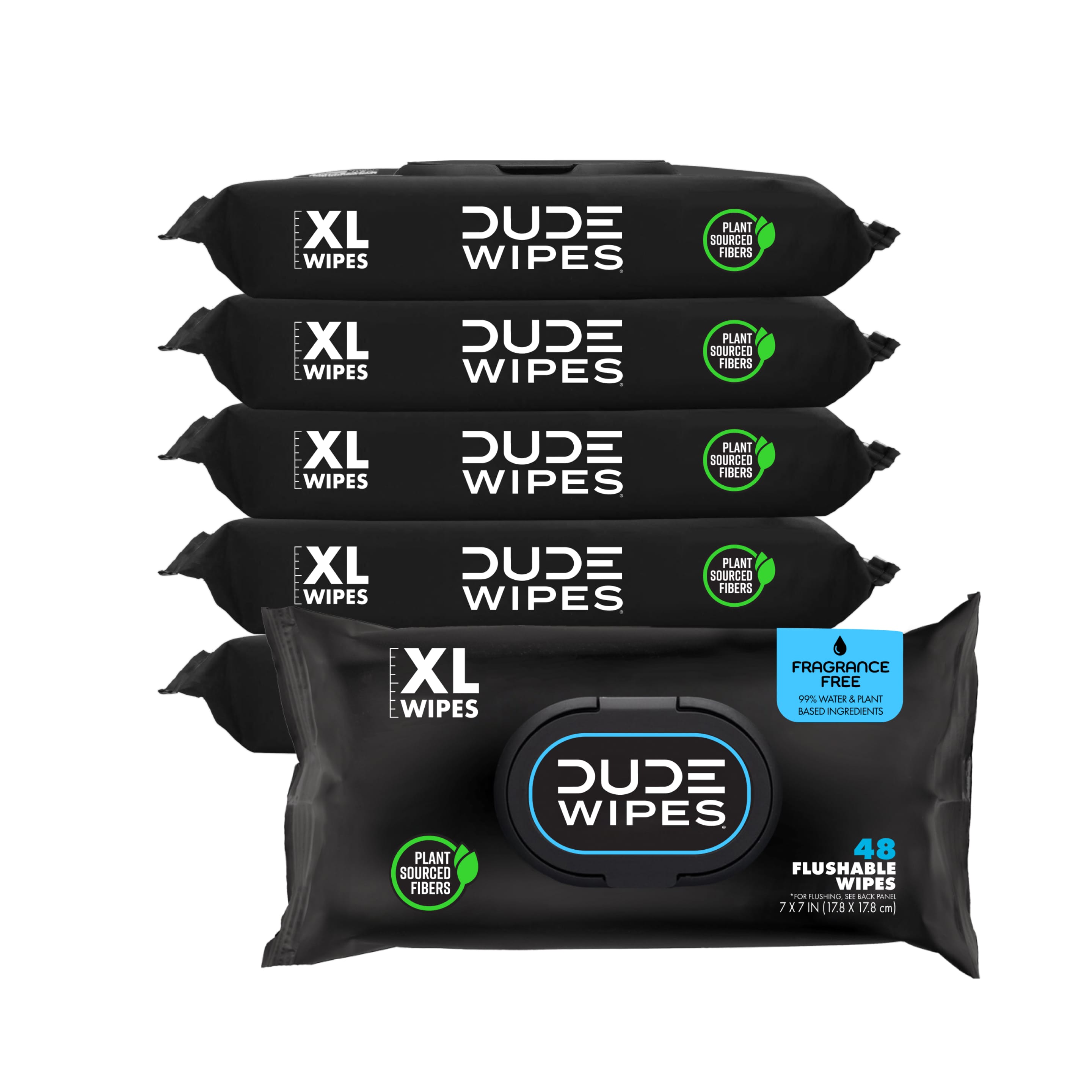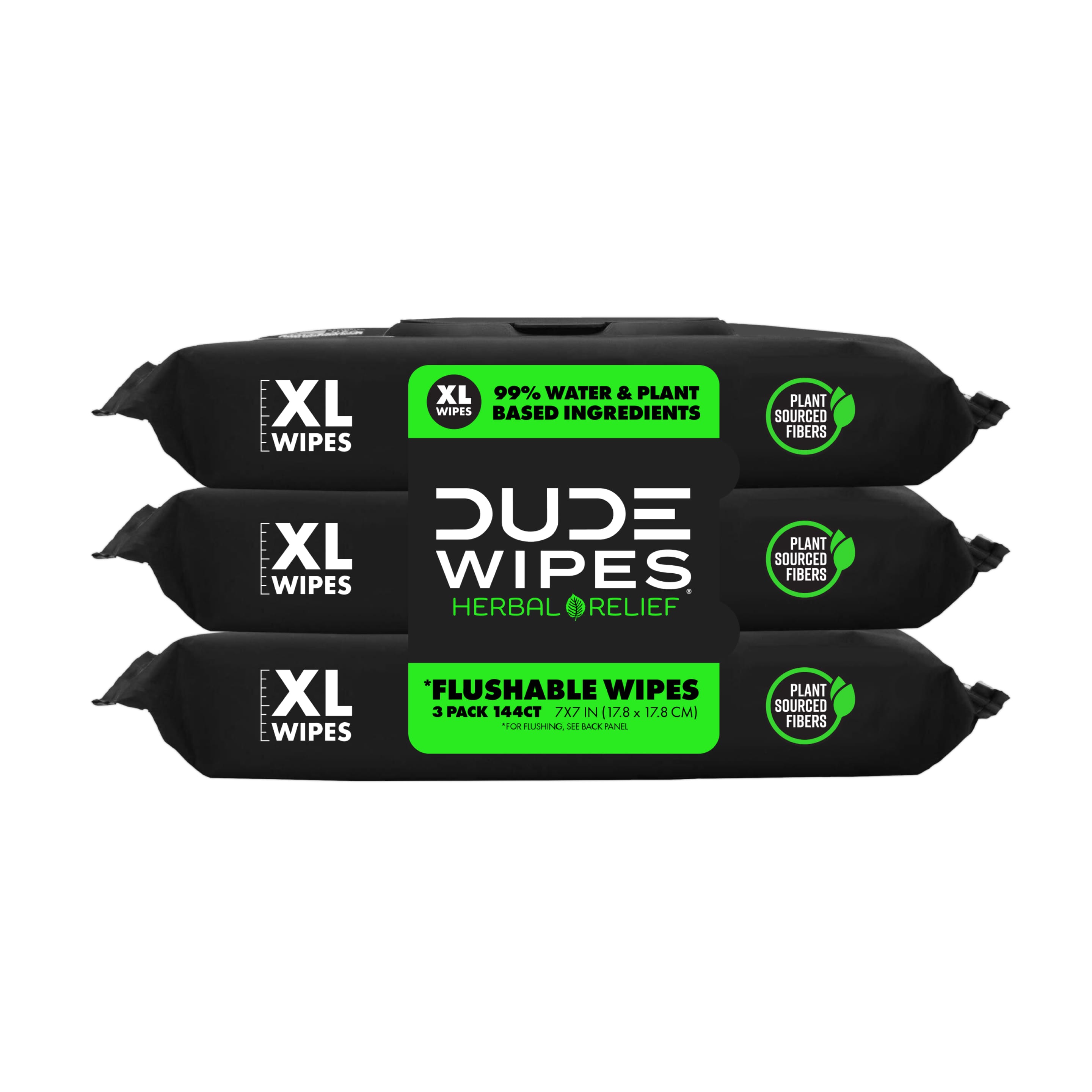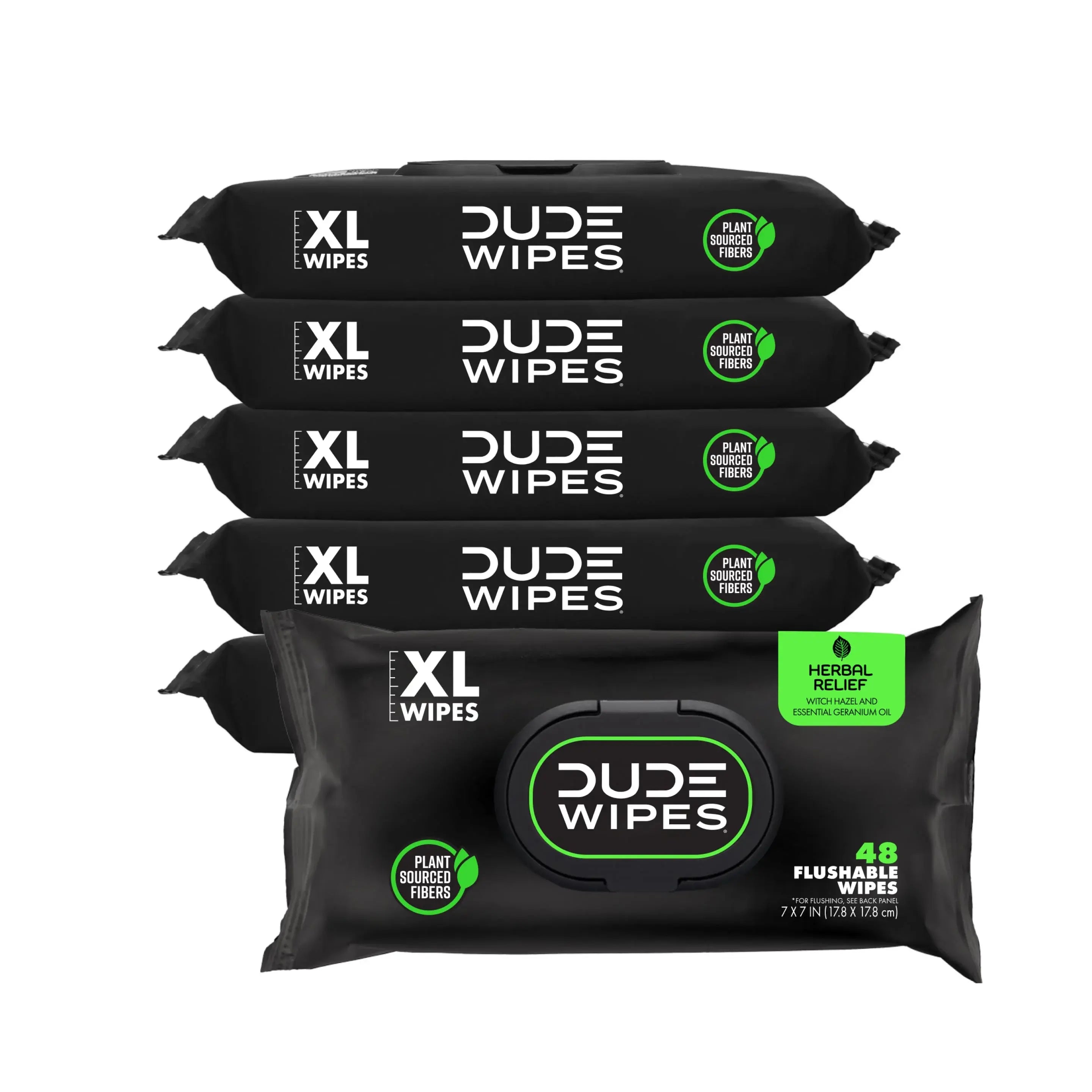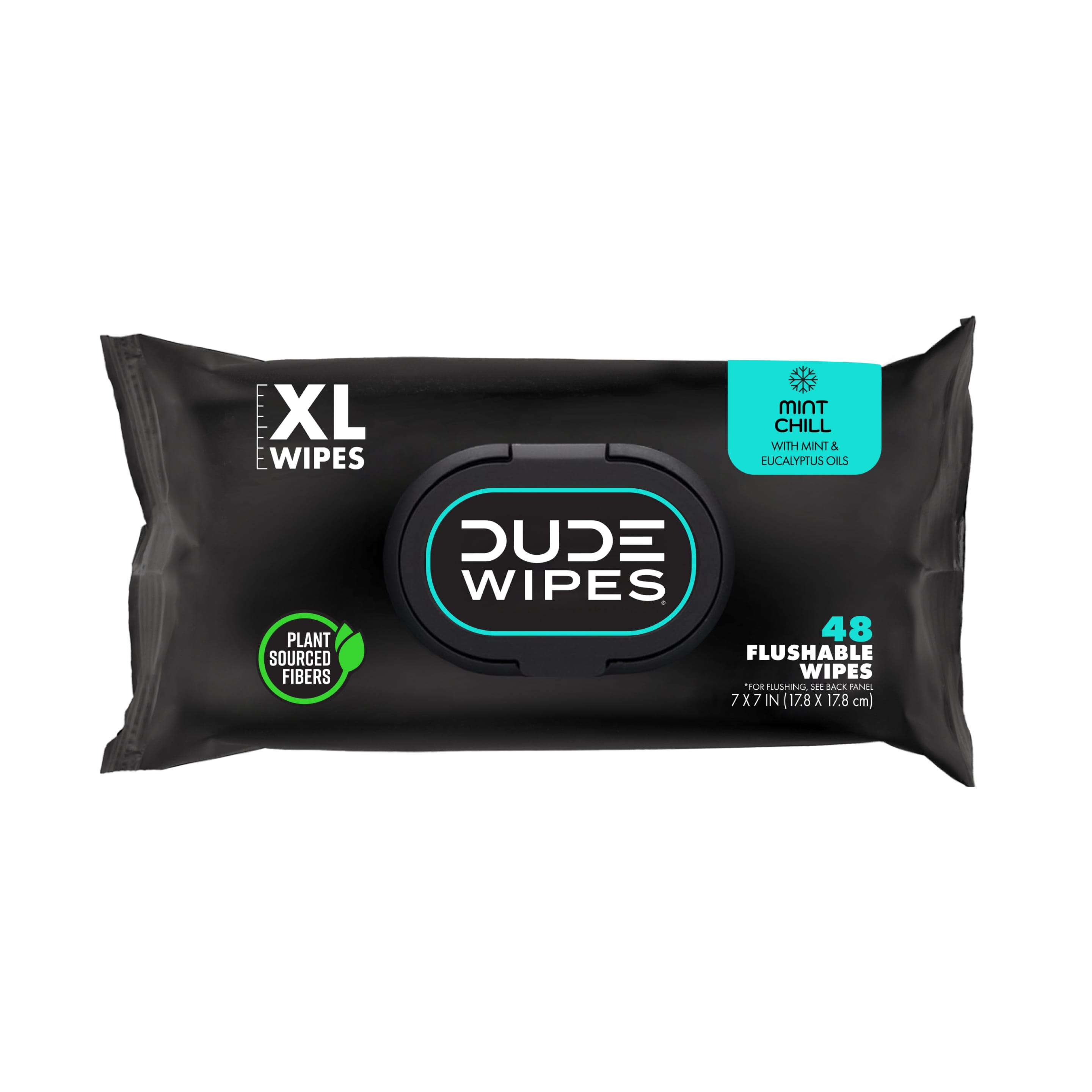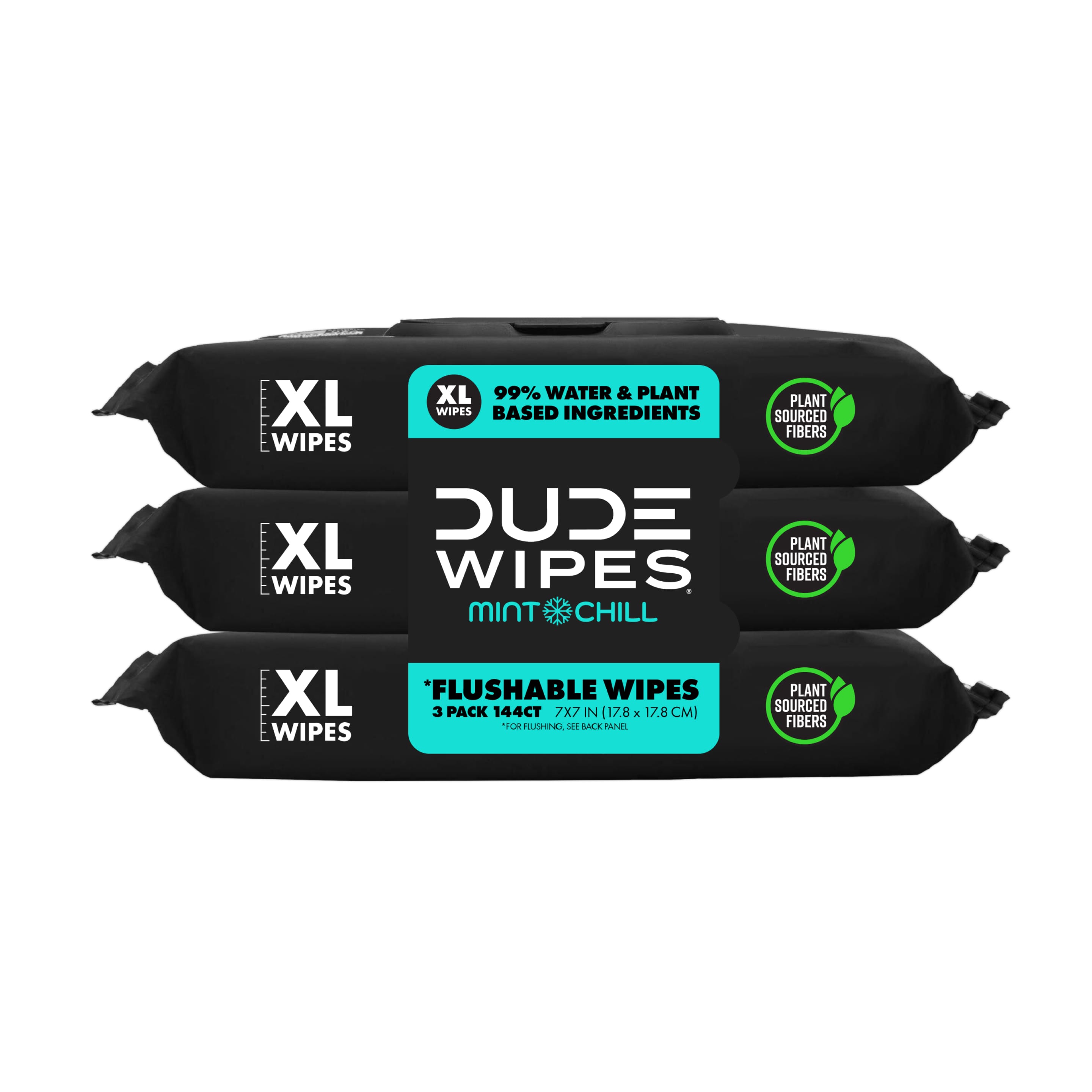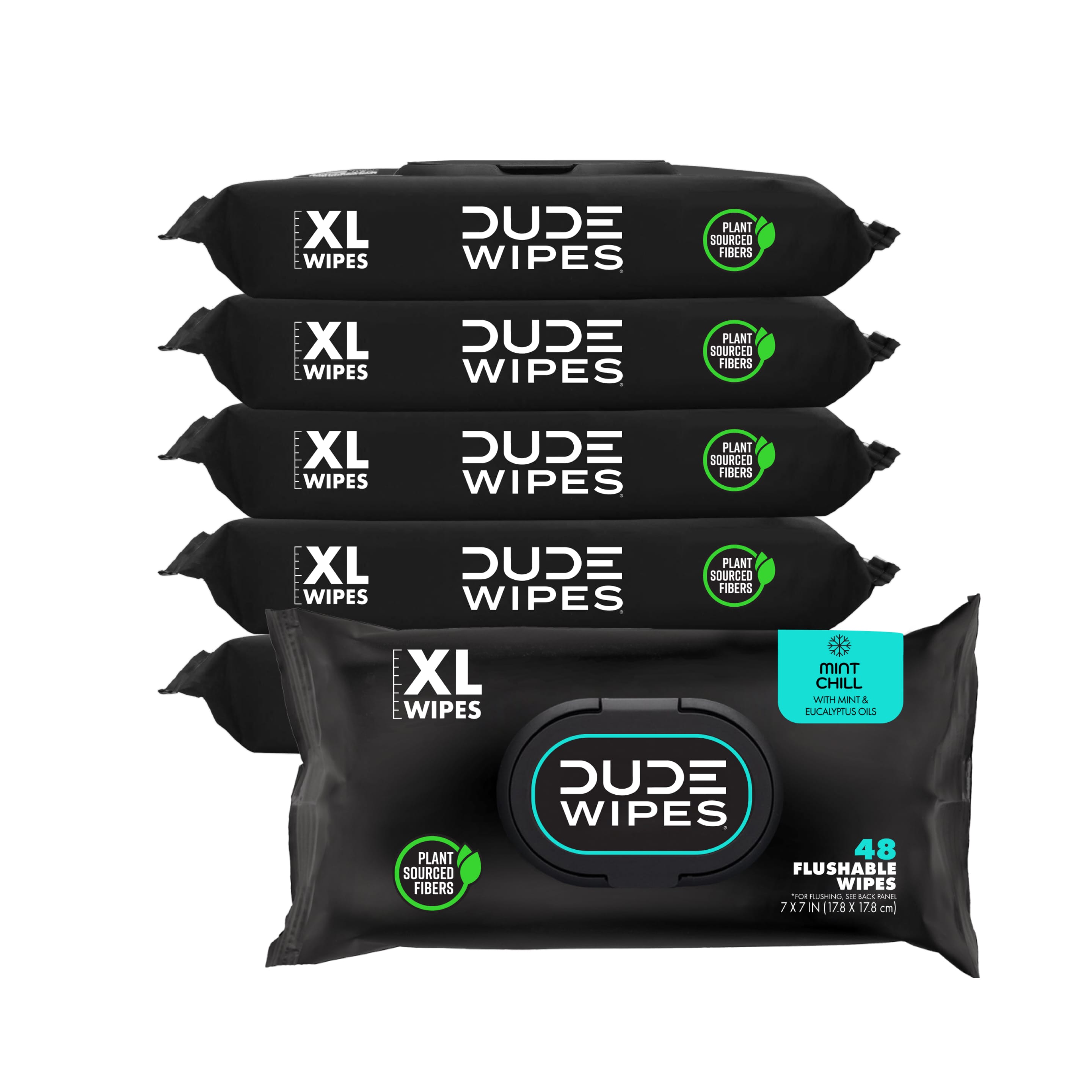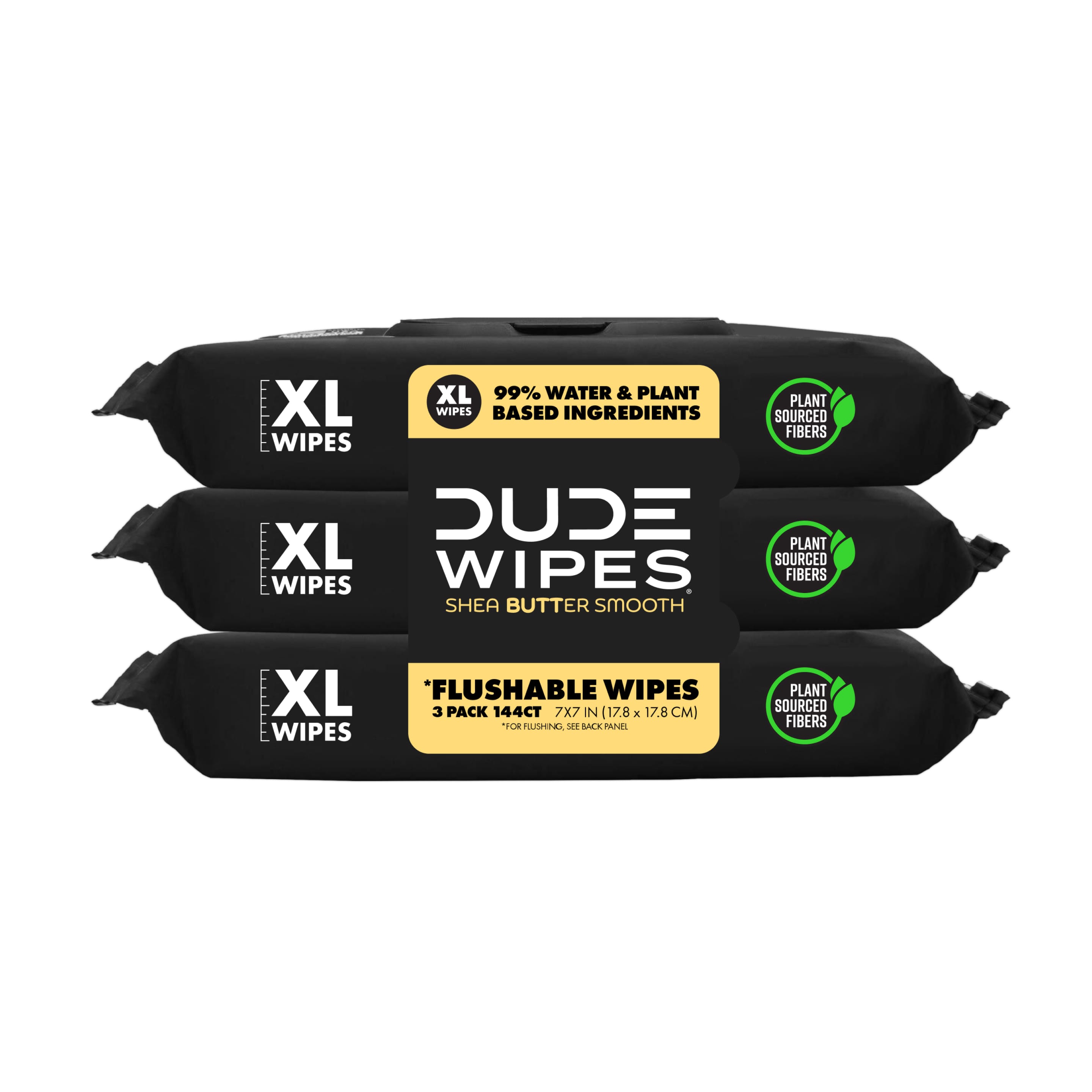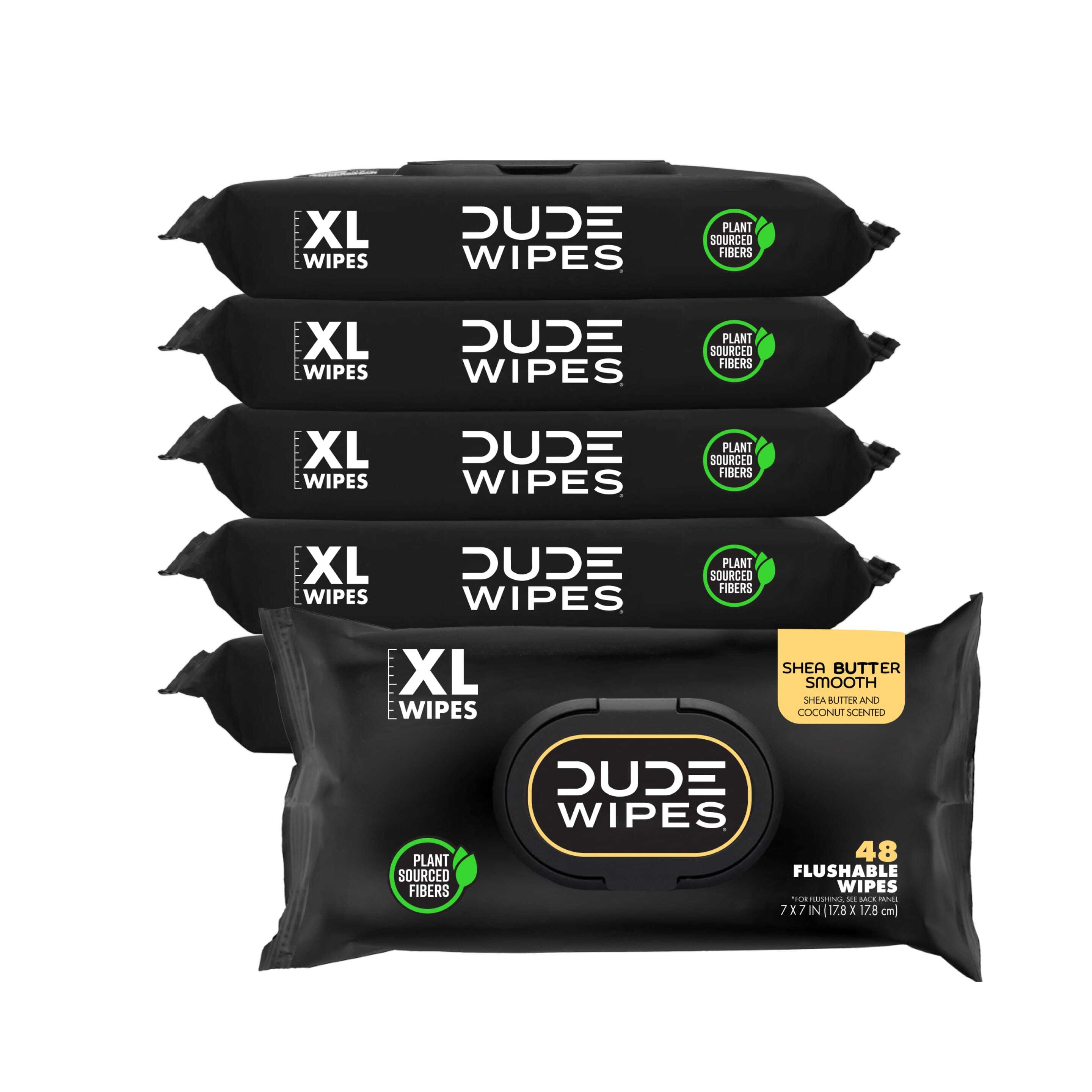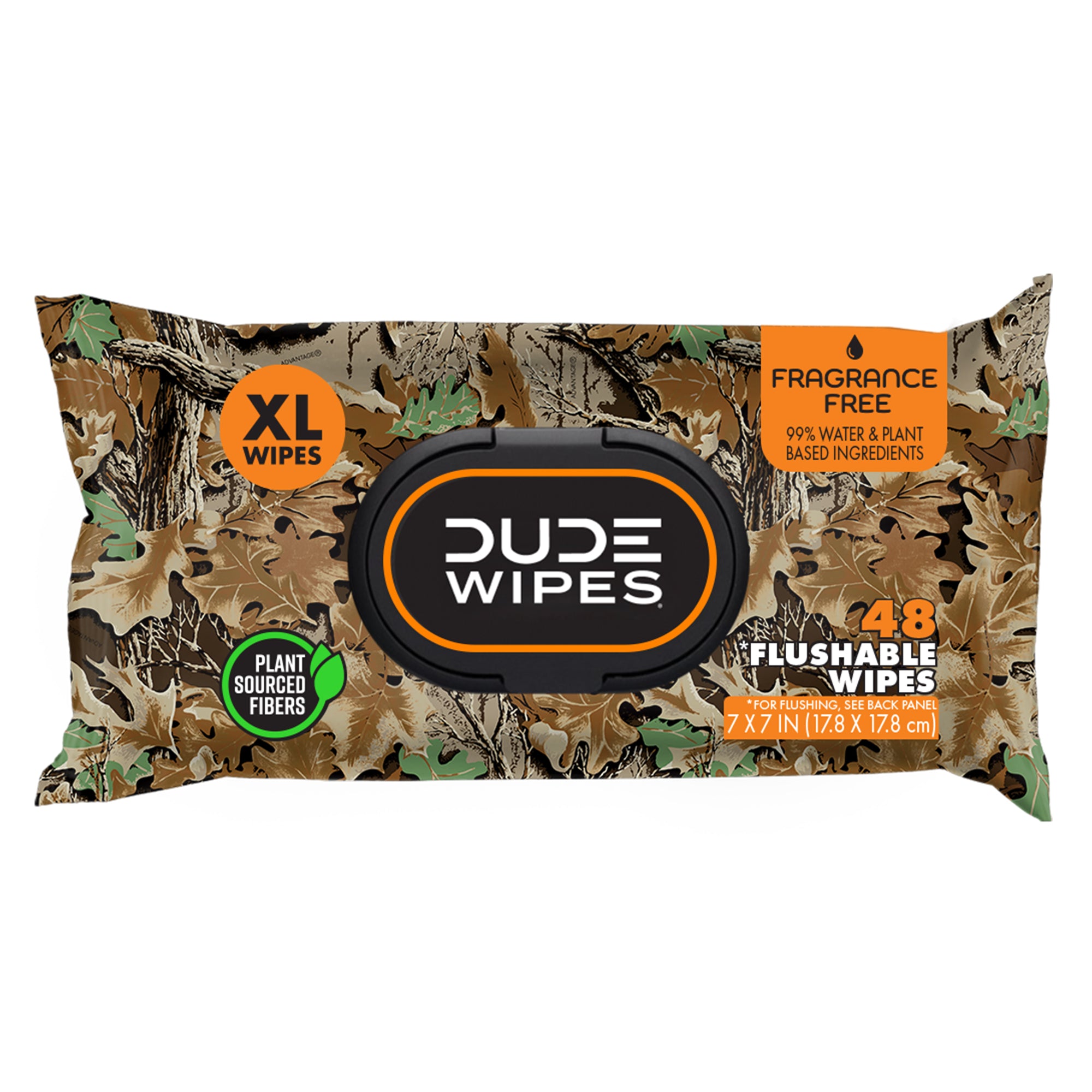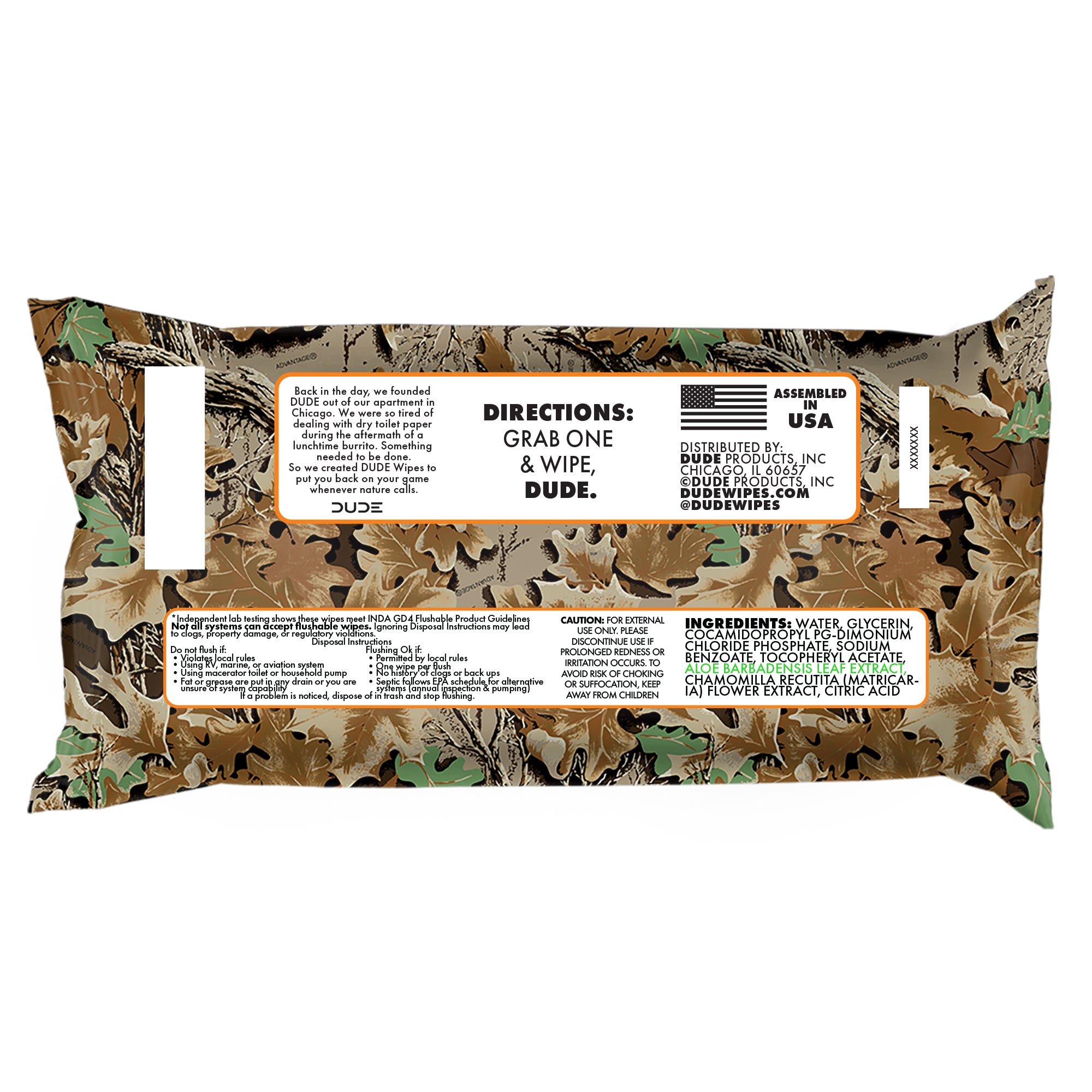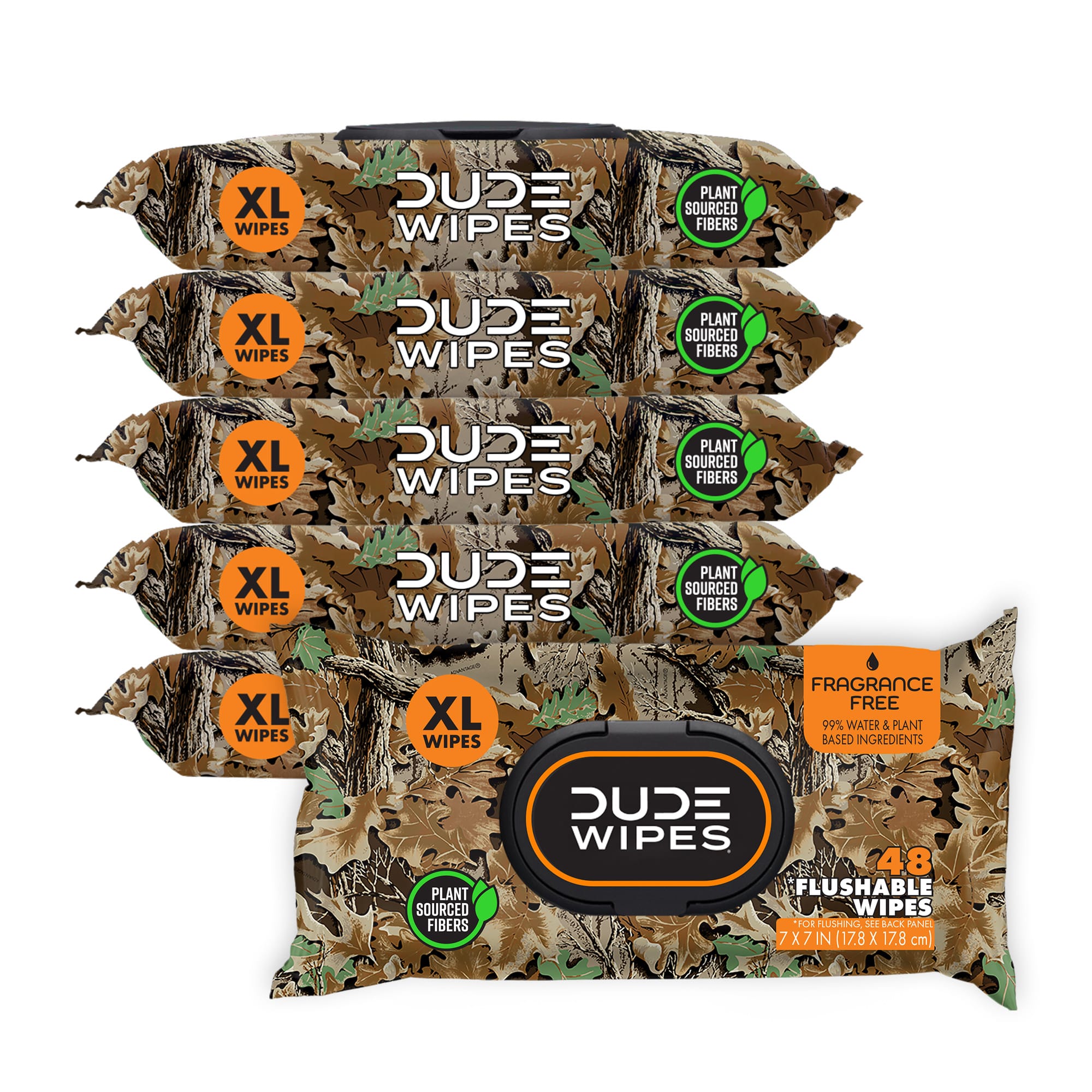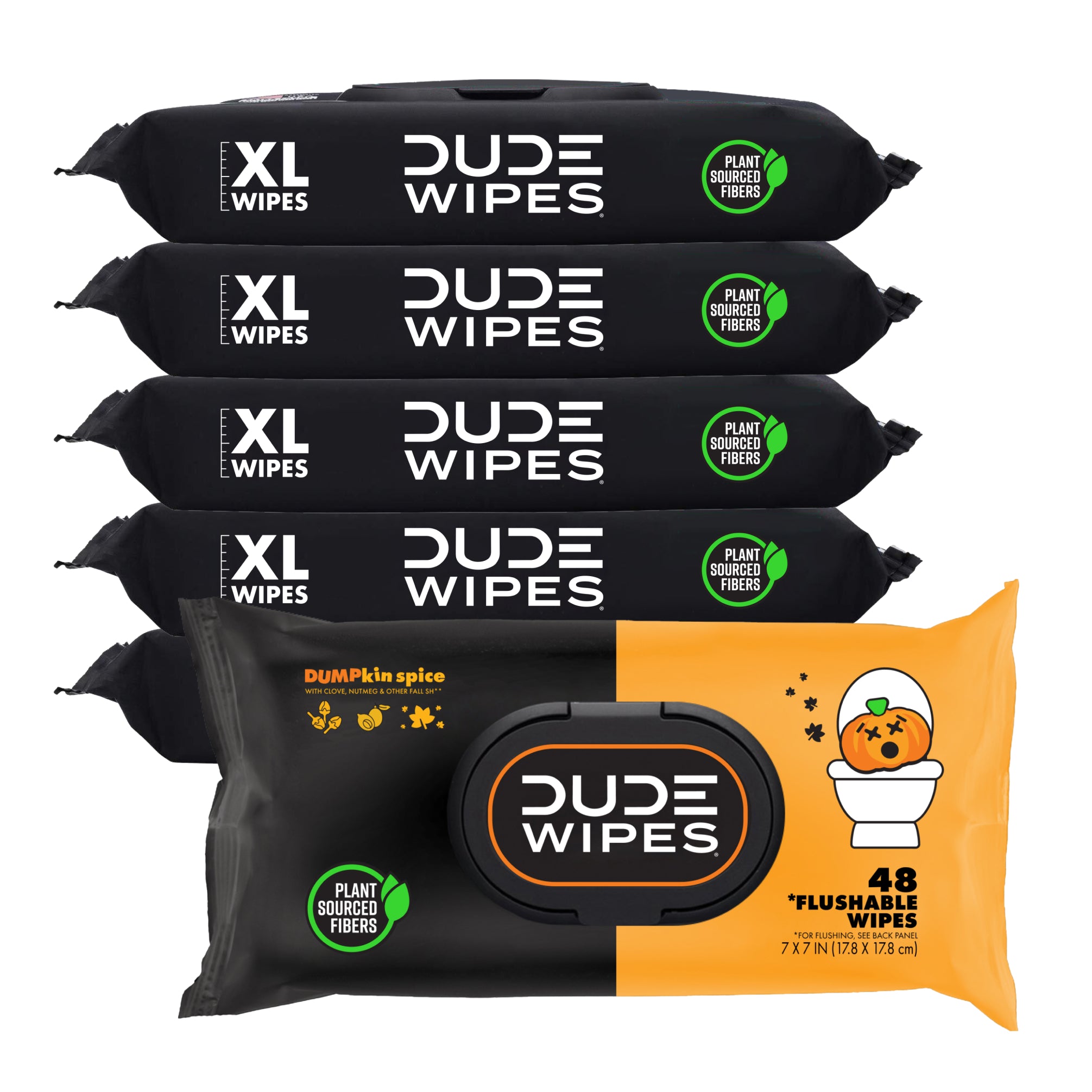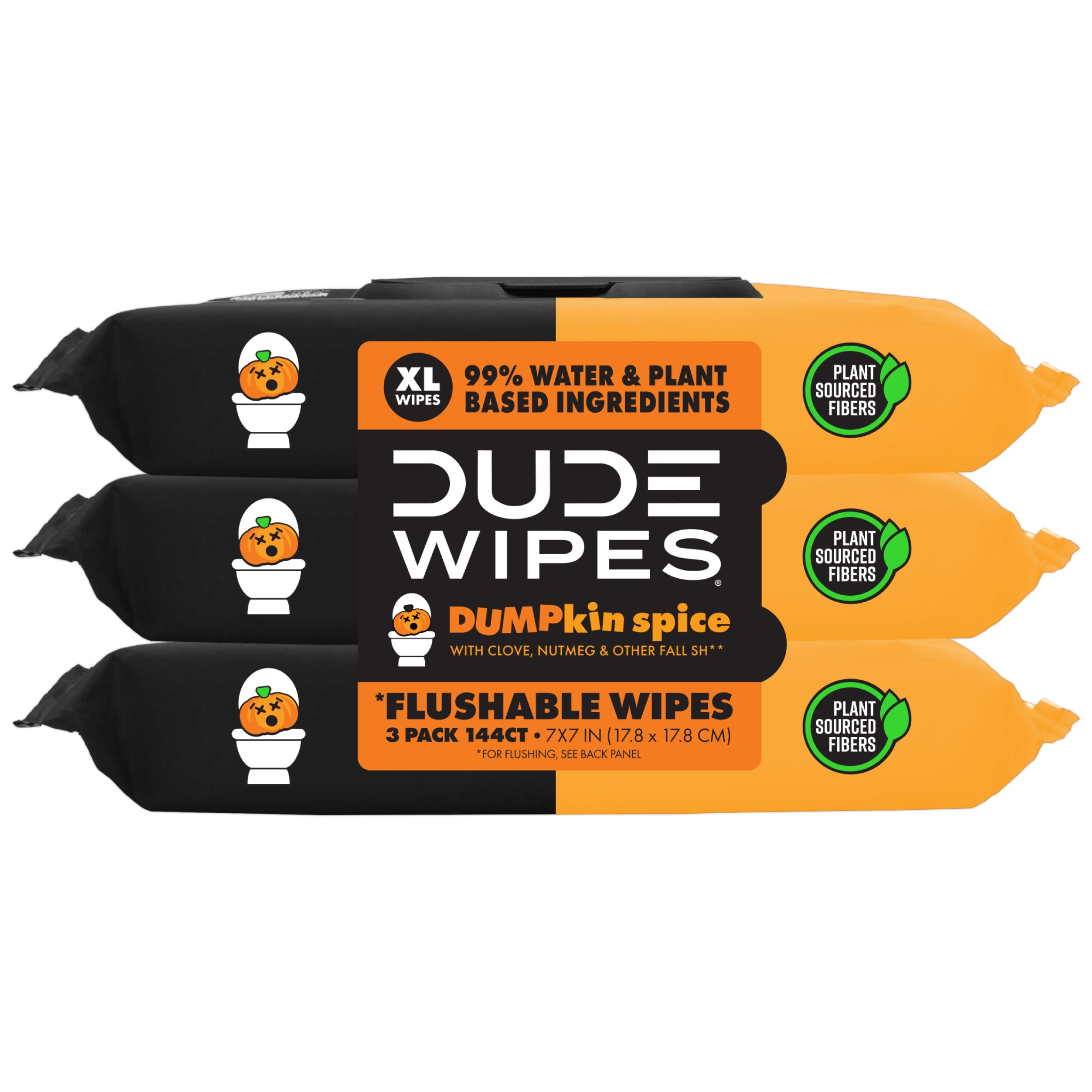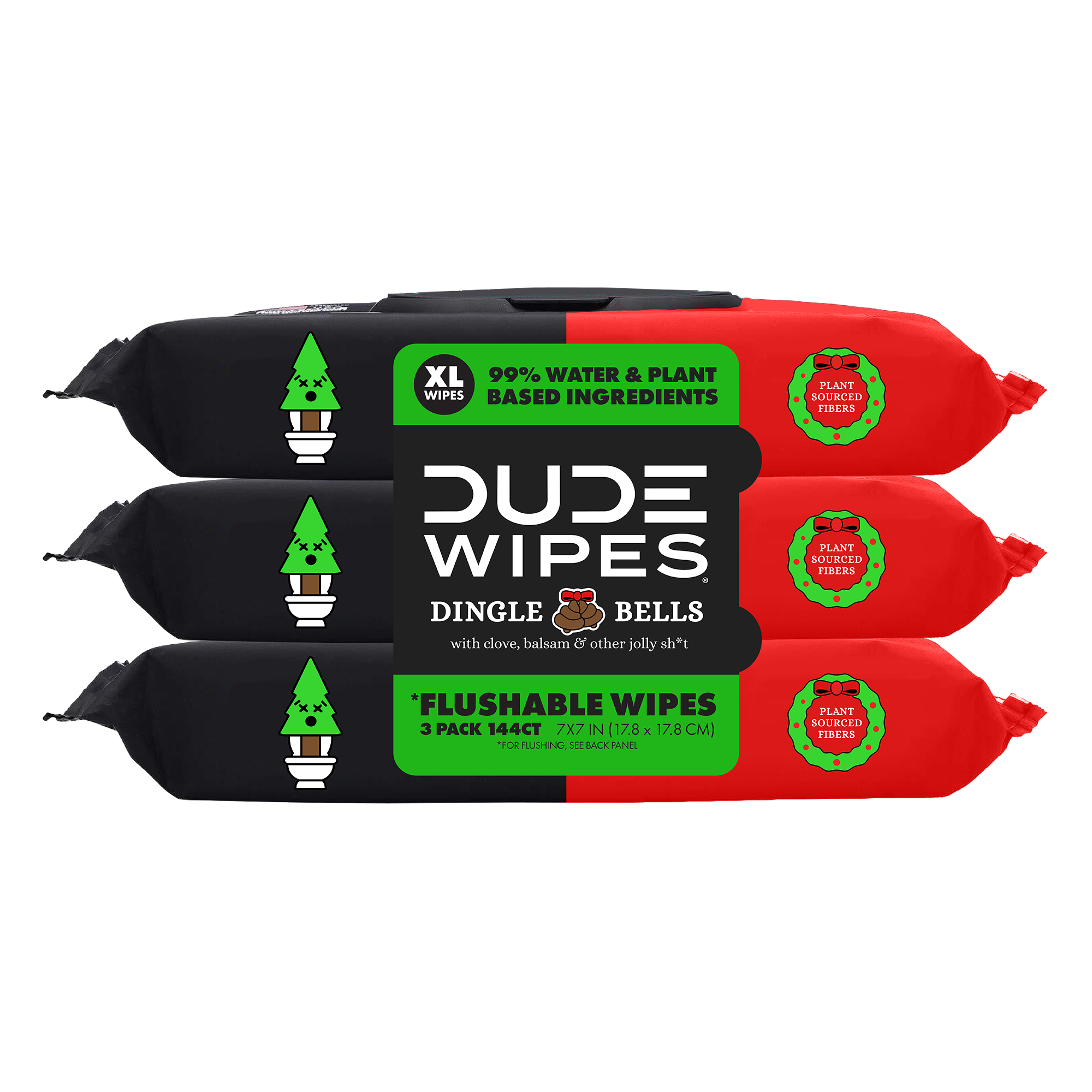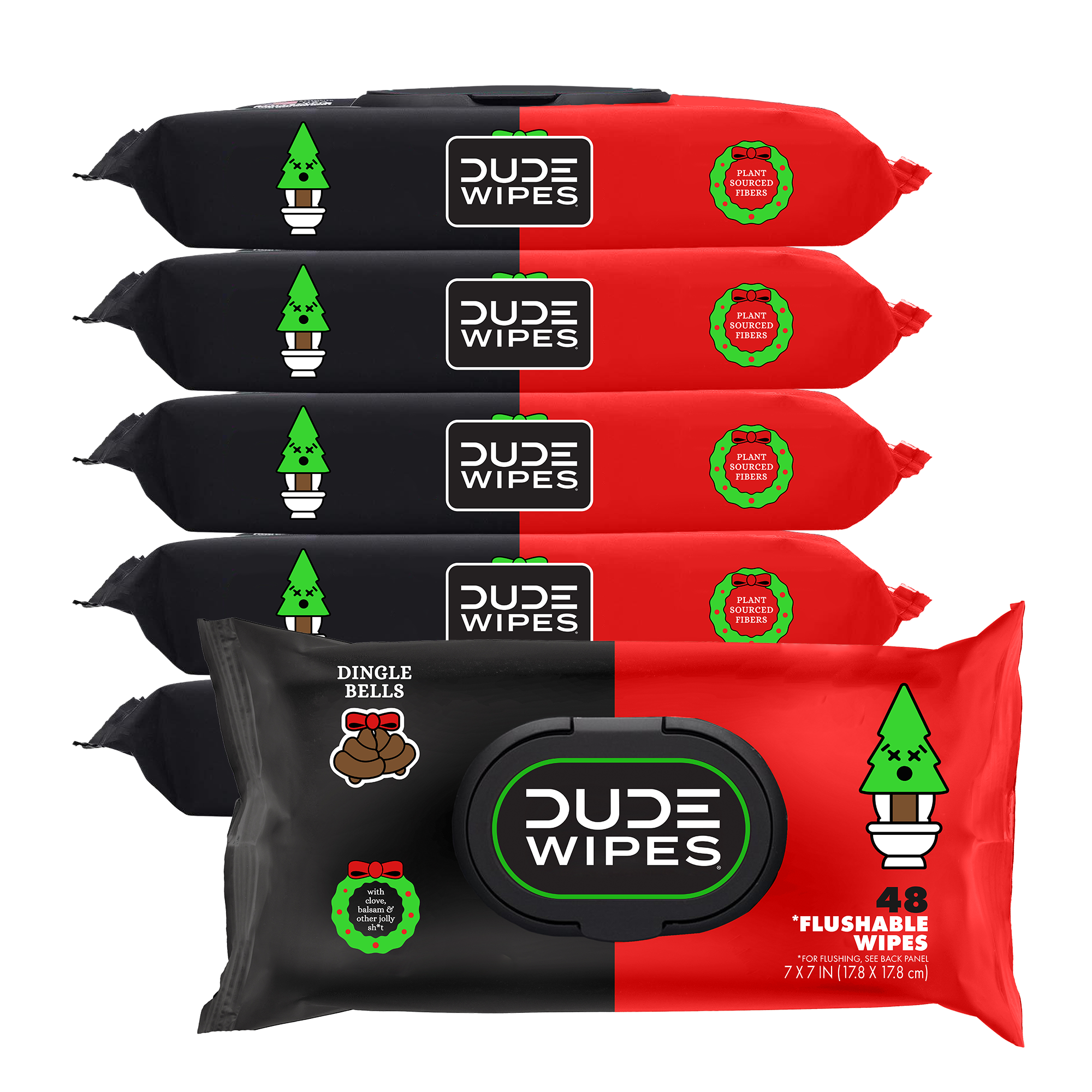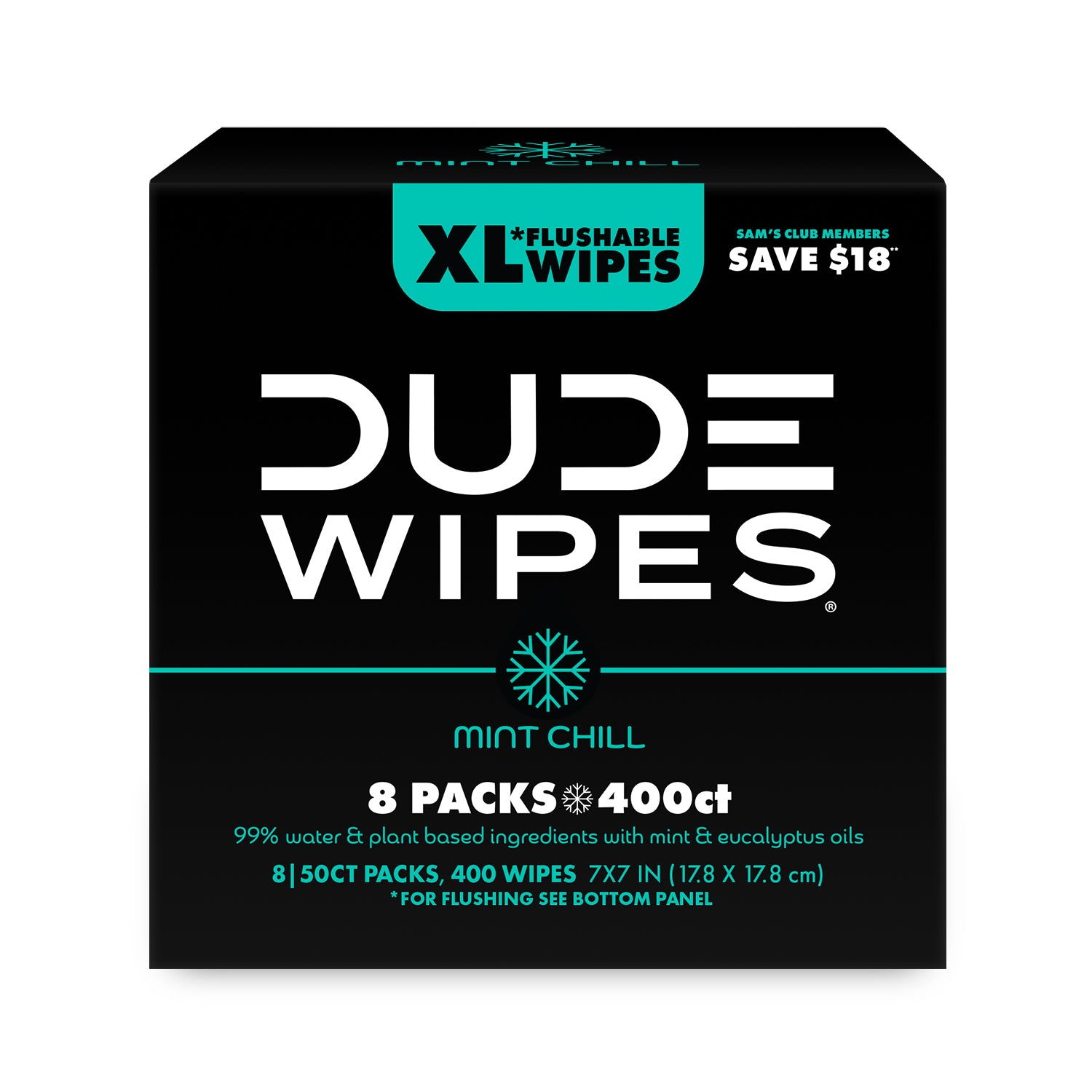In a perfect world, poop slides out of your rear like a smooth sausage with minimal effort, landing gracefully in the toilet bowl. But sometimes passing stool turns into a chore. You push, strain, and groan, only to find a few brown pebbles in the toilet.
Pebble poop usually isn’t a cause for concern—it’s most likely a sign you’re not getting enough fluids or fiber (more on that later). However, if you want a more satisfying bowel movement, you’ll need to make some lifestyle changes.
Read on to discover everything you could possibly want to know about pebble poops, including why they happen, when to worry about them, and how to make your poop look normal again.
What Is Pebble Poop?
Pebble poop (or pellet poop) is slang for hard stool that breaks apart into small pieces during a bowel movement. It’s usually dark brown and approximately the size of marbles or pebbles—hence the name.
Pebble poop is classified as type 1 on the Bristol stool chart, which is based on a 1992 study in which researchers analyzed nearly 2,000 people’s poop (true story). According to a study from 2009, type 1 stool (pebble poop) is more common amongst females than males, whose poop tends to fall into the type 5-6 range.

The hard consistency of pebble poop can make it difficult or even painful to pass. You may also feel like your poop is too big or that there’s a bunch still sitting in your colon after you go. Pebble poop is often associated with bloating, cramping, and abdominal pain.
What Causes Pebble Poop?
Pebble poop is most likely a sign of constipation. As food works its way through your digestive system, your small intestine absorbs nutrients while your large intestine soaks up water—this helps it form into turds.
However, when you’re constipated the stool sits in the colon for too long, where it turns into a hard, dry, lumpy mass. As it breaks up, it exits your butt as small fragments: pebble poop. So, the big question isn’t actually what causes pebble poop? It’s what causes constipation?
1. Dehydration
Dehydration is one of the most common causes of constipation. When you don’t have enough fluids, your poop gets hard and dry. Think of your poop like a ball of dough: if there’s not enough water it gets clumpy and hard to form, but adding water makes it smooth and easy to handle.
2. Low-fiber Diet
Getting enough fiber is the key to healthy stools. Adult men should aim for at least 30 grams of dietary fiber per day, and women should aim for 21. Some great sources of fiber include beans, whole grains, popcorn, prunes, and berries.
If you’re not getting enough from the foods you eat, try taking a fiber supplement to keep you regular.
3. Lack of Movement
Physical activity stimulates your digestive tract to keep you pooping regularly. Working a desk job or living a sedentary lifestyle is a recipe for constipation, so try to get at least 30 minutes of exercise every day.
4. Anxiety
Your brain and bowels are connected via the gut-brain axis. It’s kind of complicated, but basically your brain can shut down your urge to poop if it senses something’s off. The most common example of this is traveler’s constipation. (We suspect hotel bathrooms are home to a lot of pebble poops).
Alternatively, anxiety has the opposite effect on some people and it makes them have to poop instantly.
5. Health Conditions
Gastrointestinal problems like irritable bowel syndrome (IBS) and inflammatory bowel disease (IBD) are associated with constipation, according to Mayo Clinic. This is because of mixed signals between the brain and digestive system.
6. Medications
Certain medications have constipation as a potential side effect. These include antidepressants and narcotics.
Is It Bad to Have Pebble Poop?
Having pebble poop from time to time is normal. Not every deuce you drop is going to be a 10 out of 10. However, chronic constipation can lead to impaction: a condition where dry poop gets lodged in your intestine and can’t come out on its own. This may require laxatives or an enema to fix.
Pebble poop can also do some serious damage to your butthole. Straining on the toilet is a leading cause of anal fissures: small tears of the sensitive skin around your hole. When you get these, you might experience rectal pain when pooping and blood when you wipe.
Straining to poop can also cause hemorrhoids: swollen veins in the anus or lower rectum. They can be very painful, especially when you’re trying to wipe down there (although medicated wipes can soothe them).
Anal fissures and hemorrhoids can take weeks or even months to heal, so it’s important to be proactive about your digestive health so you can avoid this affliction. That leads us to our next section.
How to Smooth Out Your Stool
Assuming you don’t have any underlying health issues, your poop should become sausage-like once you incorporate enough exercise, fluids, and fiber-rich foods into your life. Ideally, you want your poop to resemble type 3 or 4 on the Bristol stool chart.
If you have pebble poop for more than a week or so, contact your healthcare provider to see what’s going on in your gut.
Whether you’re pooping out pebbles or burning diarrhea, don’t torture your butt with dry, itchy toilet paper. It’s ineffective and unsanitary. Do your ass a favor and switch to DUDE Wipes.

